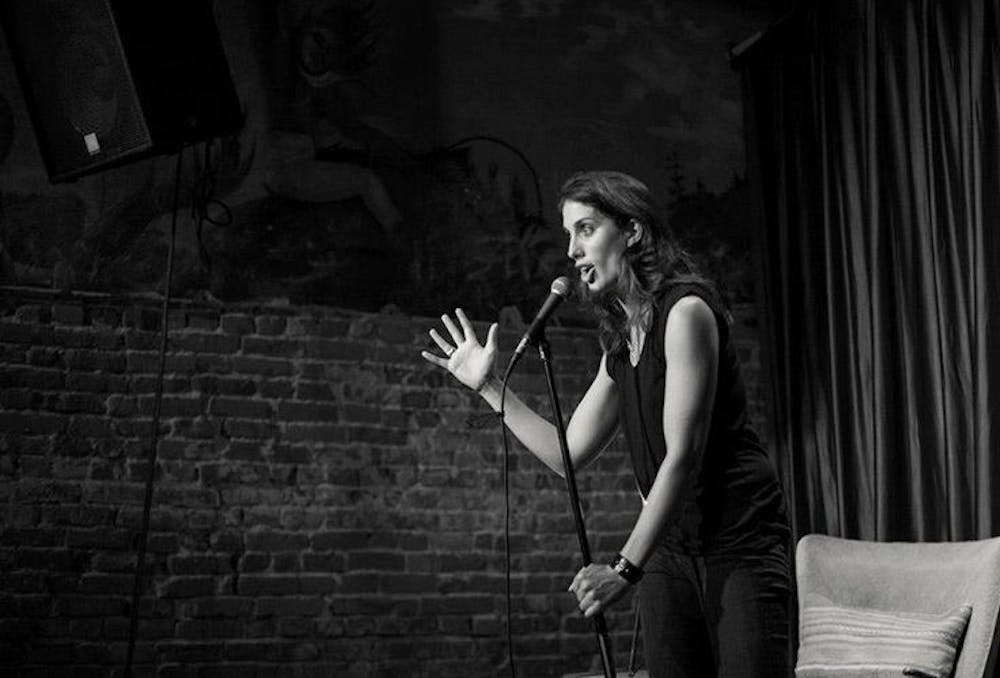Comedian visits OU for an evening of "Queertastic laughs."
Although men may make up the majority of the comedy scene, Erin Foley will show Thursday evening that not only women, but queer women, are making their voices heard.
Foley, an openly gay comedian, is going to be a part of the LGBT Center’s “Evening of Queertastic laughs with Erin Foley” at 6 p.m on Thursday. Blue Pencil Comedy will also be doing a quick performance as a opening act.
Foley is a regular cast member on TruTV’s How To Be A Grown Up. She has also appeared on The Conan O’Brien Show, Chelsea Lately, and her own Comedy Center Presents. She recently finished writing for One Big Happy, a new sitcom on NBC with executive producer Ellen DeGeneres.
This performance has been “a year in the making,” said LGBT Center Director Delfin Bautista.
“Here we have Erin Foley, a queer person as well as a woman who is sort of breaking down those barriers and that’s exciting to see,” Bautista said.
The Women’s Center and the Campus Involvement Center will also be sponsoring the event.
“Comedy is definitely really male-dominated, especially straight male-dominated, so it’s especially great to have women and other folks, queer folks, people of color doing comedy,” said Sarah Jenkins, program coordinator for the LGBT and Women’s centers. “I really love hearing alternative voices in comedy so I think Erin’s voice will be a great addition to that.”
A problem Bautista sees in comedy is the fact that while there may be a few women, such as Tina Fey and Amy Poehler, who are household names, it’s hard to find many others, and especially those of LGBT identities.
“There are a lot of comedians who are in solidarity with our community, (such as) Kathy Griffin (and) Chelsea Handler, but Margaret Cho is one of the only names that comes to mind when I think of LGBT comedians that have name recognition,” Bautista said.
The lack of voices can lead to LGBT individuals becoming the punch line of a joke, Bautista said. There’s a dynamic between insider and outsider language, where Foley can say certain jokes that others could not.
“Often times LGBT people are the joke in and of themselves, or the caricature, in TV shows, in movies, in comedy shows,” Bautista said. “It’s important for even when we’re making jokes, that that voice come from an LGBT voice and that voice be represented.”
There will be a “talk back” following the show where people can ask questions and pick Foley’s brain. Bautista said it’s important to acknowledge that there are other ways to make an impact on the world other than simply academic ways.
“You don’t have to have a Ph.D. in order to push social boundaries and create change in society, you can also do that through laughter and through jokes and through humor,” Bautista said.
@reb_barnes
rb605712@ohio.edu






